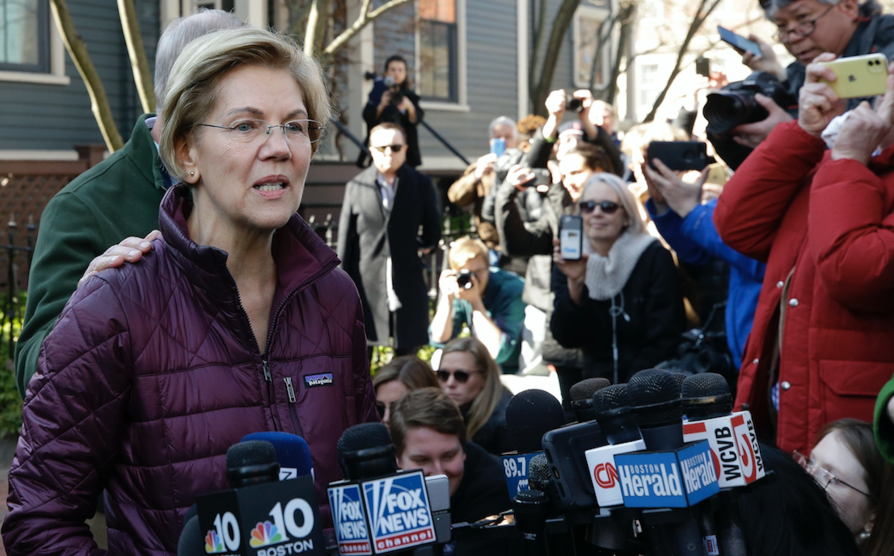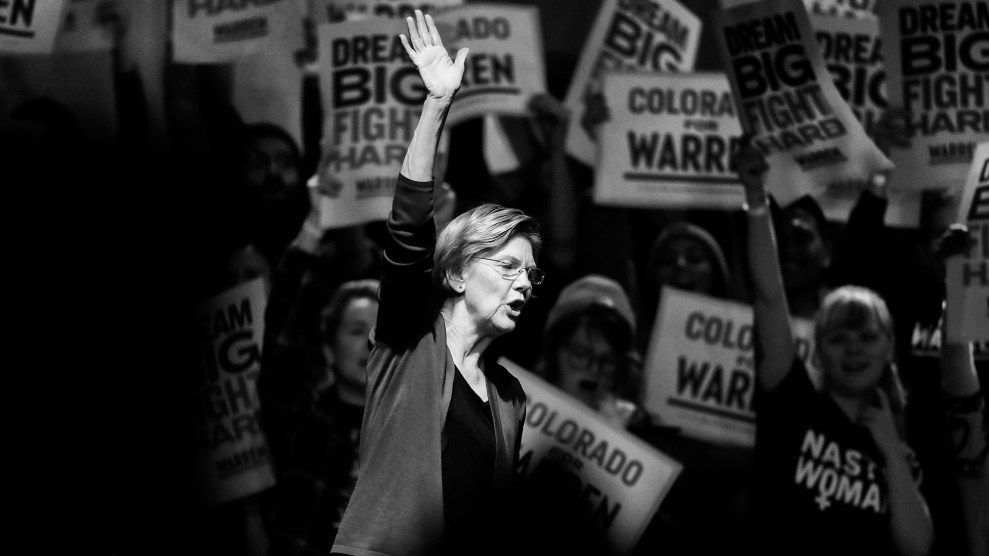
Steven Senne/AP
As her dog Bailey watched curiously from the window, Massachusetts Sen. Elizabeth Warren on Thursday greeted reporters outside her home in Cambridge to confirm the inevitable: The former Harvard law professor and brief Democratic 2020 presidential frontrunner was suspending her campaign.
It was a decision that had become all but certain following her disappointing performances in the early voting states, and the victory of former Vice President Joe Biden in her home state. By Super Tuesday, the countdown to her announcement quickly morphed into a media waiting game. But on Thursday, as she made the news official, Warren managed to transform that foregone conclusion into a deeply personal reflection on her campaign:
.@ewarren: “Gender in this race? You know, that’s the trap question for everyone. If you say, ‘Yeah, there was sexism in this race,’ everyone says, ‘Whiner!’ If you say there was no sexism, about a bazillion women think, ‘What planet do you live on?'” https://t.co/uIKTIXob1P pic.twitter.com/qjdSuGd1XX
— Mother Jones (@MotherJones) March 5, 2020

















